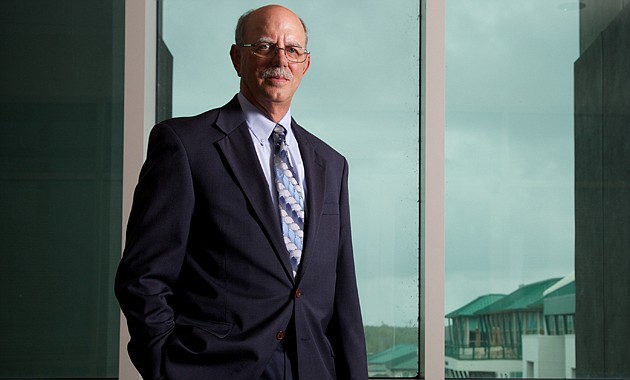Gary Jackson is the director of the Regional Economic Research Institute at Florida Gulf Coast University in Fort Myers. Each month, he tallies the region's housing data, unemployment, retail sales and other gauges. In addition, he polls business owners and executives about current and future economic conditions in the region.
Jackson recently discussed his positive outlook for next year with the Business Observer.
Compared with 2013, do you expect the regional economy to improve, stay the same or slow?
I think it's going to improve. We still have a ways to go, but it's improving. We're seeing a lot more activity in housing than before. There are even dump trucks now all over the roads. I expect continued recovery and a better year next year.
What could derail your forecast?
There are a couple of things that could derail it. One is if we run into problems with being able to agree on what the debt ceiling should be and Congress is unable to make a decision about what the budget should be. Right now I expect they will eventually reach some sort of agreement, but if they don't and it's prolonged, that's going to create problems with business and consumer confidence. Just as a note, it's really important that we have a plan to eventually balance the budget. And as the economy improves, the Federal Reserve is going to react to that and raise interest rates. There's a fear we might end up with inflationary expectations rising.
And so the Fed is looking at inflation and the unemployment rate.
What is the most important economic gauge business owners in our region should pay attention to when they're planning for next year?
I would look at what's happening with retail sales to understand what consumers are doing. The Horizon Council FGCU business climate survey is designed to give us an economic indicator that is forward looking. We get a response from approximately 100 executives who provide their sense of the economy over the next year. The latest index was at 69, so that indicates expected future growth.
If you were advising a business expanding in our region, what risks should a CEO consider?
They'd have to consider the area's seasonality, depending on the business.
What is your outlook for job creation for the area?
I think it's going to be improving, but it's not going to be a huge jump. I think people are feeling better about the economy. We're starting to see more investment, which is a big factor in terms of the ability to hire.
Will homebuilding activity continue at the same pace or faster?
I think things are picking up, I really do. People are feeling better about their positions. I think we're going to see more new starts and the continuation of the trend we've seen where distressed sales become less and less. It's going back to a more normal market.
Is commercial development going to rebound?
I think it will be slow, but it will pick up some.
What is your outlook for the winter and spring tourist season?
One thing that's really important for our region is: How is the rest of the world doing? Their feeling about the economy and housing is very important. People are feeling better relative to where they were a year ago and so people are taking vacations and visiting the area. Overall, I would put next year as a better year than this year. It's still a recovery year, but still improving relative to where we've been.
What is one thing local government officials could do to help business in our region?
I think we've seen some of it already. They've looked at the costs of building and the cost of impact fees. They've lowered them to create investments and jobs. This area needs to continue to have a business-friendly climate, not only for existing businesses but also for us to attract companies. One of the things we're working on is workforce. There's a group called Workforce Now that is doing research to understand what companies need. The idea is to make a better alignment between business and education.
Do you foresee more issues from the federal government having an impact on the uncertainty among local business owners and entrepreneurs?
I think it has a big impact on the economy. Congress and the president are leading the country. They have to decide on priorities. Do we need more education? More technology? If consumer confidence or business confidence falls, then that's a real problem.






